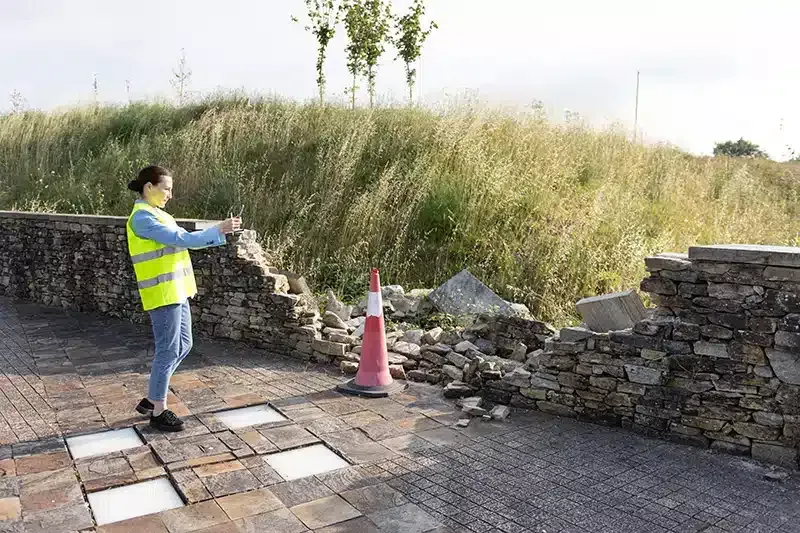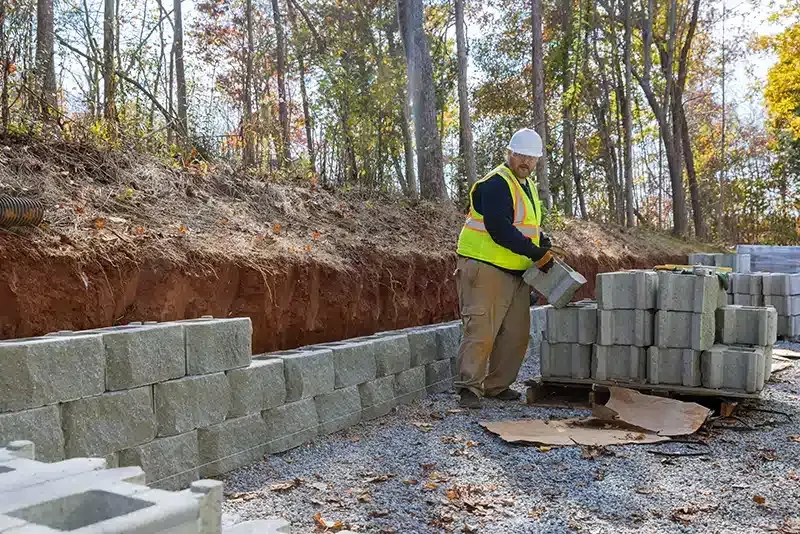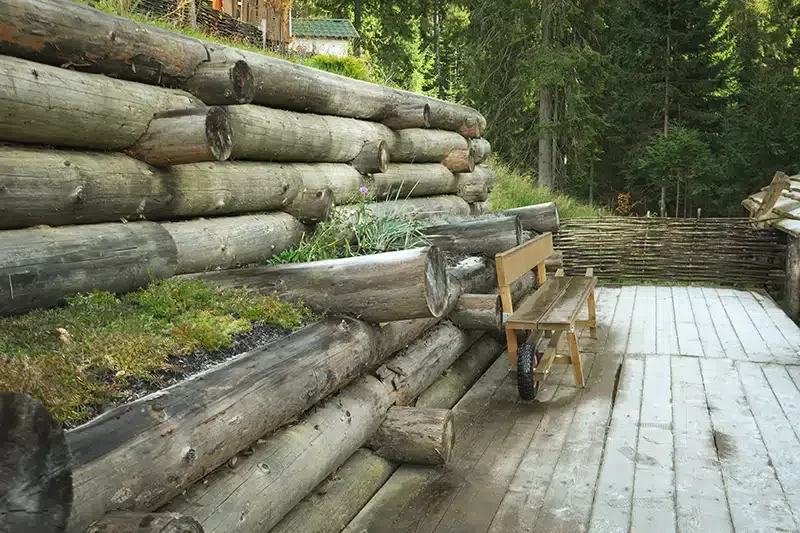Why Is Experience Important When Hiring for Concrete Retaining Wall Projects?
When hiring for concrete retaining wall projects, prioritizing experience is crucial to ensure a successful outcome.
A contractor's expertise goes beyond just completing the project; it influences safety, efficiency, and compliance with local regulations.
Experienced professionals can navigate challenges that may arise, preventing costly mistakes and ensuring the project meets all necessary standards.
However, it’s not just about qualifications—understanding the specific needs of the project is key.
So, what should you focus on when assessing a contractor's expertise for your retaining wall project?
Understanding Project Requirements
Before diving into any concrete project, a clear understanding of the requirements is key to ensuring success. Grasping the scope, objectives, and specific needs at the outset helps avoid costly mistakes and ensures that the project stays on track.
Review Project Plans and Specifications
Start by thoroughly reviewing all plans and specifications.
- Site Conditions: Consider any challenges posed by the site.
- Local Regulations: Ensure compliance with zoning laws or permits.
- Unique Factors: Address any special requirements early on.
Clear Communication with Stakeholders
Establish open lines of communication with all involved parties.
- Clarify Expectations: Ensure everyone understands timelines and goals.
- Precise Details: For projects like retaining walls, confirm material needs, dimensions, and load requirements.
- Avoid Misunderstandings: Regular check-ins help ensure alignment.
Adaptability and Flexibility
Be prepared for changes during the project’s lifecycle.
- Address Issues Quickly: New challenges can arise, so swift action is essential.
- Collaborate with the Team: Keep an open dialog to navigate adjustments.
- Evolving Information: Be ready to adapt to new data or conditions.
By reviewing plans, communicating clearly with stakeholders, and being adaptable to changes, you lay the groundwork for a smooth and efficient project. This proactive approach not only helps you manage resources effectively but also allows you to deliver high-quality results that meet or exceed expectations.
Ensuring Quality and Safety
Establishing rigorous standards from the outset is crucial to guarantee both quality and safety in your concrete projects. When selecting a contractor, focus on proven experience and a solid track record, especially in concrete retaining wall projects. An experienced professional understands the nuances of materials and techniques to create durable, safe structures.
Proven Experience and Track Record
Look for contractors with demonstrated expertise in handling concrete retaining wall projects.
- Familiarity with Materials: They’ll know the best materials for long-lasting results.
- Techniques: Their experience ensures they can apply the right techniques for stability and safety.
Compliance with Building Codes and Regulations
A reputable contractor will always adhere to local building codes.
- Understanding Codes: They’ll ensure your project meets all legal safety standards.
- High-Quality Materials: They will prioritize quality to ensure a durable structure.
Effective Safety Protocols
Experienced contractors implement safety measures to protect everyone involved.
- Hazard Identification: They can proactively spot and mitigate potential risks.
- Safety Protocols: Their practices safeguard both the construction team and your property.
Prioritizing a contractor with a solid history, compliance knowledge, and safety focus ensures that your concrete project will be completed to the highest standards, offering peace of mind and long-lasting results.
Cost Efficiency and Timeliness
Maximizing your investment in concrete projects requires prioritizing cost efficiency and meeting deadlines. Hiring an experienced contractor ensures that your project will be completed on time and within budget.
These professionals have the expertise to manage materials, labor, and logistics, reducing the risk of unexpected costs or delays.
Effective Planning and Scheduling
Experienced contractors excel at proper planning and managing timelines.
- Timely Permits and Inspections: They ensure all necessary permits and inspections are completed on schedule.
- Anticipating Challenges: They foresee potential issues and implement solutions to avoid costly delays.
Proactive Problem-Solving
An experienced contractor can quickly address issues before they escalate.
- Pre-emptive Solutions: Their knowledge helps prevent problems from causing interruptions.
- Saving Money: Proactive steps help avoid extra expenses and keep the project on track.
Supplier Relationships for Better Rates
Seasoned contractors often have established ties with material suppliers, ensuring better pricing.
- Access to Discounts: They can pass on savings to you, lowering material costs.
- Efficient Sourcing: Their connections streamline the supply chain, reducing delays and costs.
In conclusion, hiring an experienced contractor ensures that your concrete project runs smoothly, stays within budget, and meets deadlines, ultimately giving you a successful outcome without the financial or time-related headaches.
Hiring an experienced contractor for your
concrete retaining wall
project is essential for ensuring quality, safety, and cost efficiency.
Their proven expertise allows them to navigate challenges, adhere to building codes, and manage resources effectively, ultimately delivering a durable, safe, and timely result.
By choosing a seasoned professional, you’re investing in a project that meets your expectations and enhances the value of your property, with minimal risks and delays.


